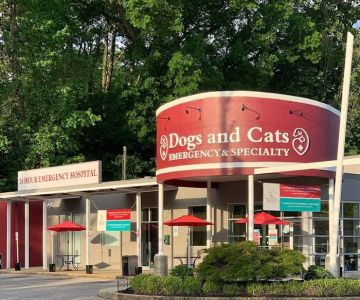The Best Food for Senior Dogs: What to Feed Your Aging Pup
As pet parents, one of the most important responsibilities we have is ensuring our dogs stay healthy throughout their lives. When my dog started showing signs of aging, such as slower movement and less energy, I realized I needed to make some changes to his diet. Senior dogs have unique nutritional needs, and choosing the best food for them can have a huge impact on their health and well-being. Let me share my experience and what I learned about feeding older dogs the right food.
1. Why Nutrition Matters for Senior Dogs
As dogs age, their metabolism changes, and their nutritional needs evolve. Senior dogs are more prone to conditions like joint problems, digestive issues, and a weakened immune system. Their food must provide the right balance of nutrients to support their health. I noticed that my dog became less active, which is common for older dogs, so I knew that food that supports joint health and energy was essential.
1.1 Key Nutrients for Older Dogs
In my search for the best food for senior dogs, I learned about some key nutrients that are especially important. First and foremost, protein is crucial for maintaining muscle mass. However, it’s also important not to overload senior dogs with too much protein, as their kidneys might be more sensitive. Healthy fats are also vital for energy and keeping their coat shiny and healthy. Omega-3 fatty acids, in particular, help with inflammation and joint health, which is something I focused on for my aging dog.
2. Best Types of Food for Senior Dogs
When it comes to feeding senior dogs, there are a variety of food options available. I explored several types of food to find the best fit for my dog. The best choice depends on your dog's breed, health conditions, and preferences. I found that there are several types of dog food that are particularly beneficial for aging dogs: dry kibble, wet food, and even raw food diets.
2.1 Dry Kibble for Senior Dogs
Dry kibble is a convenient and popular choice for many dog owners, including myself. It’s easy to store, and many brands now offer formulas specifically designed for senior dogs. When selecting dry food, look for options that are lower in calories but rich in fiber and protein. This helps maintain a healthy weight and muscle tone while preventing obesity, which can be a concern for senior dogs. I made sure to choose a kibble with added glucosamine and chondroitin to support joint health.
2.2 Wet Food for Senior Dogs
Wet food can be a good option for senior dogs who have dental issues or have difficulty chewing dry kibble. It's easier to digest and can be more palatable for picky eaters. Many wet foods designed for senior dogs include the same nutrients found in kibble, like protein, healthy fats, and joint-supporting ingredients. I added some wet food to my dog’s meals as a topper, and he seemed to really enjoy the added flavor and moisture.
2.3 Raw Food Diet for Senior Dogs
Raw food diets have become increasingly popular for dogs, and there are many benefits to this type of feeding, especially for senior dogs. Raw food is rich in natural enzymes, which help with digestion and absorption of nutrients. It also contains high-quality proteins and fats that are easy to digest. However, switching to a raw food diet requires careful planning and a commitment to sourcing safe, high-quality ingredients. I considered this option but decided to stick with a combination of dry and wet food for simplicity and convenience.
3. Special Considerations for Senior Dogs with Health Issues
If your senior dog has health issues, such as arthritis, kidney disease, or obesity, it’s important to choose food that addresses those specific concerns. I knew my dog’s joints were starting to show signs of wear, so I sought out food with ingredients that support joint health, like glucosamine, chondroitin, and omega-3 fatty acids.
3.1 Joint Health and Mobility
For dogs experiencing joint pain, food that includes glucosamine and chondroitin can help support cartilage and improve mobility. Omega-3 fatty acids, found in fish oils, are also great for reducing inflammation in the joints. My dog has shown signs of arthritis, and feeding him a diet rich in these nutrients has made a noticeable difference in his ability to move comfortably. Joint health was my top priority when choosing the best food for my senior dog.
3.2 Weight Management for Senior Dogs
Maintaining a healthy weight is another critical factor for senior dogs. Many senior dogs are less active, which can lead to weight gain. Overweight dogs are at higher risk for developing conditions like diabetes, heart disease, and arthritis. I carefully selected dog food that was formulated for senior dogs with fewer calories and added fiber to keep my dog at a healthy weight. These weight management formulas also help control hunger, which is helpful for dogs who tend to overeat when given the opportunity.
3.3 Digestive Health in Older Dogs
Older dogs may experience digestive issues due to slower metabolism and weaker gut health. Foods with added probiotics and prebiotics can help promote healthy digestion. These ingredients support the growth of good bacteria in the gut and aid in nutrient absorption. For my dog, I opted for a senior dog food formula that includes these digestive aids to help him maintain a healthy digestive system. After switching to this type of food, I noticed improvements in his digestion and stool quality.
4. How to Transition to Senior Dog Food
When switching to senior dog food, it’s important to do so gradually to avoid upsetting your dog’s stomach. I started by mixing a small amount of the new food with his regular food, gradually increasing the proportion of new food over the course of a week. This method helped prevent any digestive issues and allowed me to monitor his response to the new food. During the transition, I also paid attention to his energy levels, coat condition, and overall well-being to make sure the food was a good fit.
5. The Best Senior Dog Food Brands
There are many reputable brands offering high-quality senior dog food. Some of the top brands I found in my research include Blue Buffalo, Hill’s Science Diet, Royal Canin, and Nutro. These brands offer specially formulated foods for senior dogs with a focus on protein, joint health, and overall wellness. It's always a good idea to consult with your vet before making a final decision to ensure you're selecting the best food for your dog’s specific needs.
Finding the right food for my senior dog was an important part of keeping him healthy and comfortable as he aged. I highly recommend consulting your vet and doing thorough research to find the food that best suits your dog’s needs. By choosing the right food, you can ensure your senior dog enjoys his golden years to the fullest.











